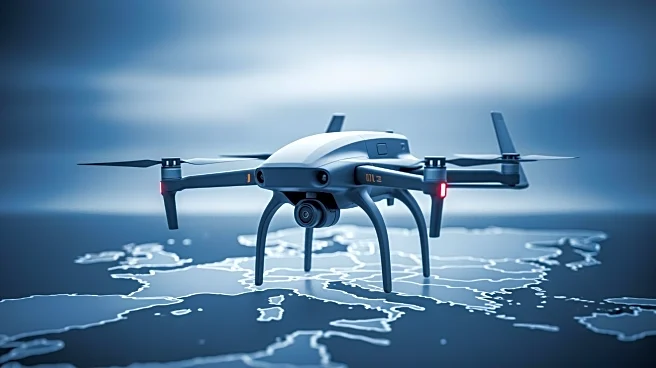What's Happening?
Granta Autonomy, a Lithuanian drone manufacturer, is actively supplying drones to Ukraine amidst rising tensions in the region. The company has developed the X-Wing loitering munition, equipped with a four-kilogram warhead, which has been tested and ordered
by Ukraine. This drone is designed to operate effectively against main battle tanks and includes shrapnel for harder targets. Lithuania has recently faced border incursions from Belarus, prompting the country to enhance its drone defenses. Granta Autonomy's operations are driven by firsthand experiences on the Ukrainian battlefield, allowing them to refine their technology and deliver effective solutions to both Ukraine and Lithuania.
Why It's Important?
The supply of drones to Ukraine by Granta Autonomy highlights the growing role of technology in modern warfare and the strategic importance of drone capabilities in conflict zones. This development is crucial for Ukraine as it bolsters its defense against Russian aggression, providing advanced tools to counteract military threats. For Lithuania, the increased focus on drone technology is a response to regional security challenges, particularly border incursions from Belarus. The collaboration between Lithuania and Ukraine in drone technology signifies a strengthening of defense ties and shared security interests, potentially influencing broader geopolitical dynamics in Eastern Europe.
What's Next?
As Lithuania continues to enhance its drone capabilities, further investments in technology and defense infrastructure are expected. The ongoing conflict in Ukraine may lead to increased demand for advanced drones, prompting Granta Autonomy to expand its production and innovation efforts. Additionally, Lithuania's strategic focus on drone technology may influence its defense policies and international collaborations, potentially leading to joint initiatives with other NATO members. The situation in Ukraine remains fluid, and the effectiveness of these drones in combat scenarios will be closely monitored, potentially shaping future military strategies and procurement decisions.















